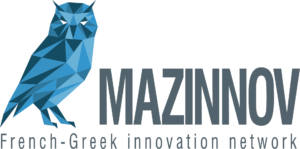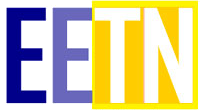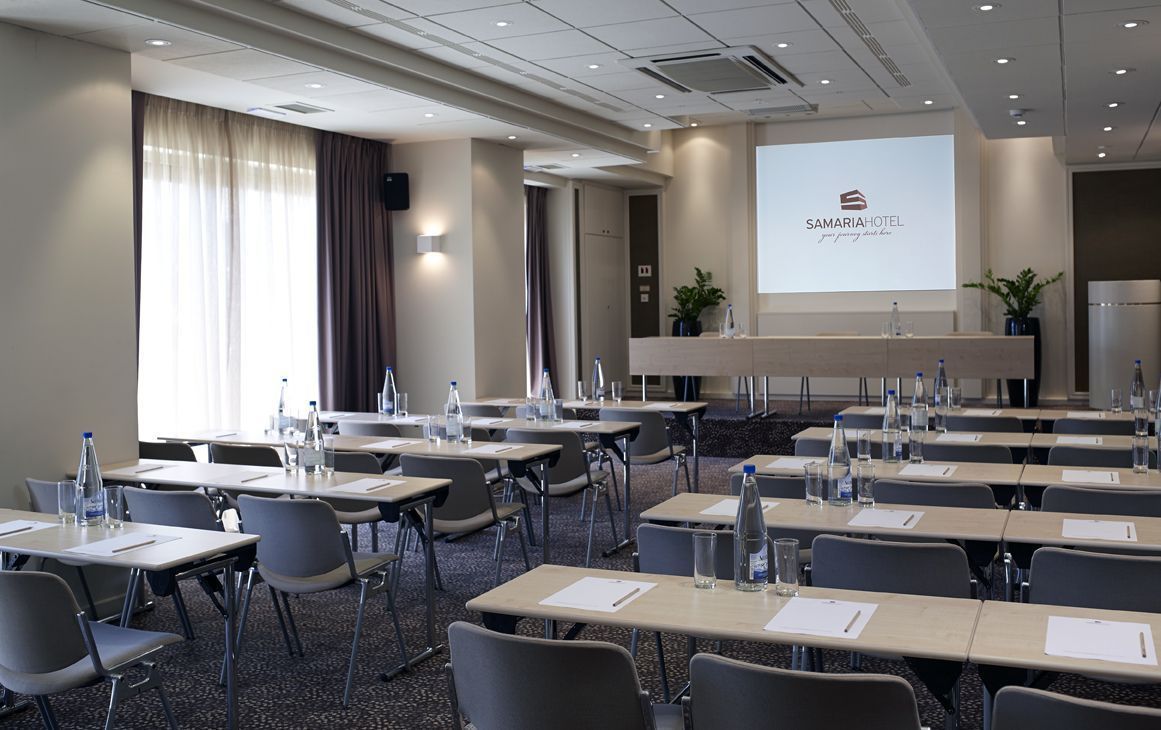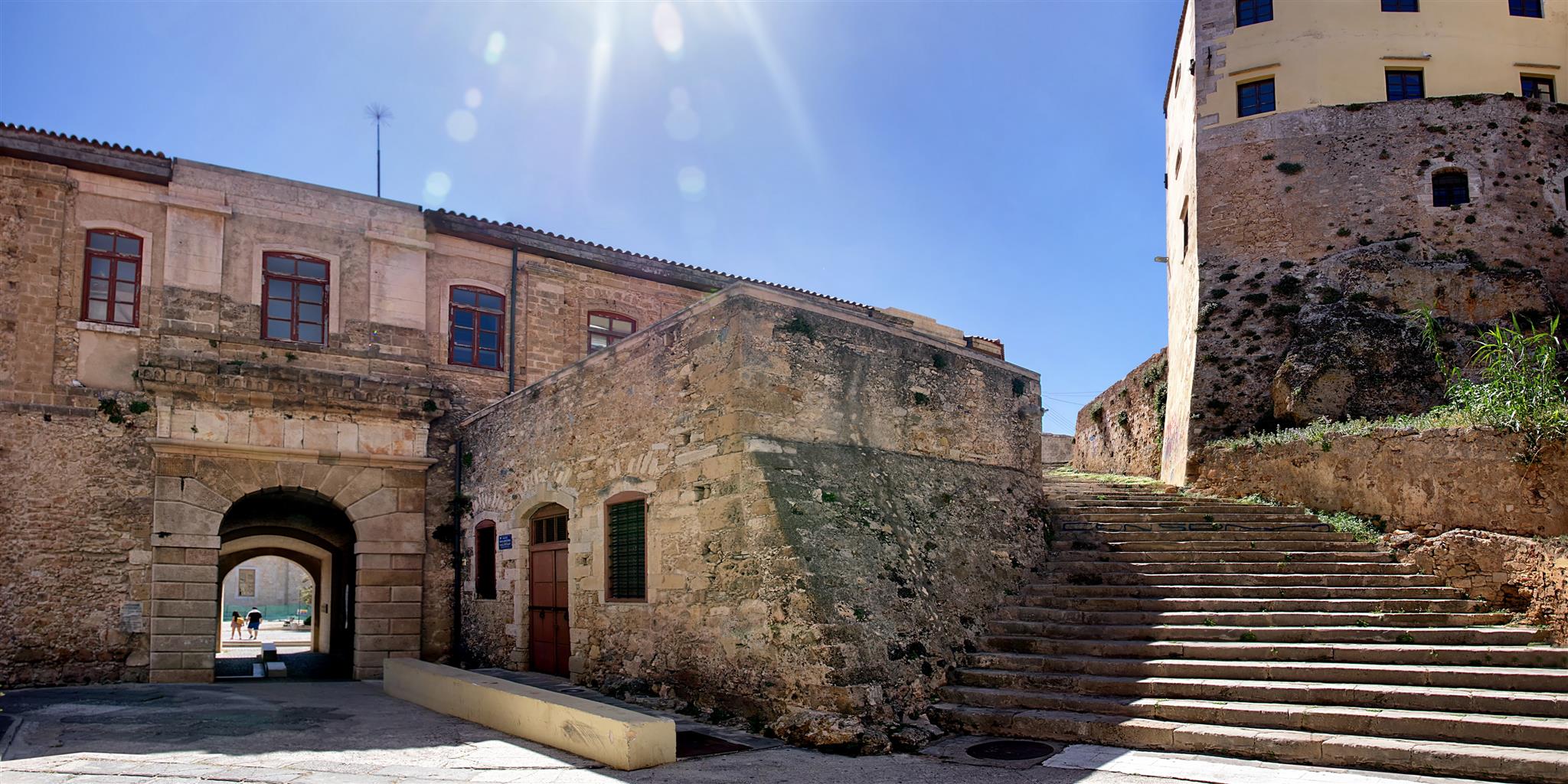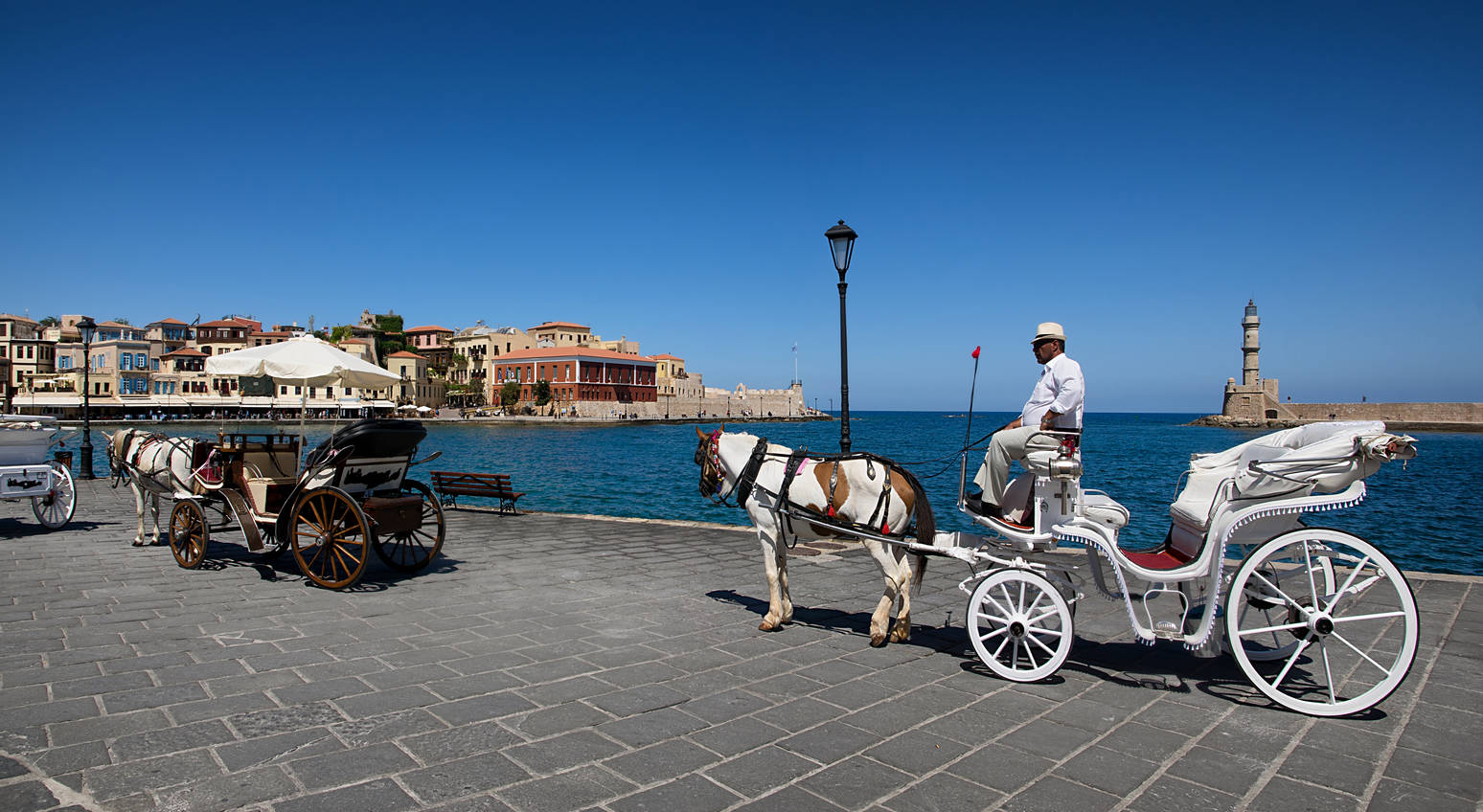
1st International Summer School
on Artificial Intelligence and Games
Summer School Description
The first international summer school on Artificial Intelligence and Games will be held on Crete (Chania), Greece, from May 28 to June 01, 2018.
The summer school is dedicated to the uses of artificial intelligence (AI) techniques in and for games. After introductory lectures that explain the background and key techniques in AI and games, the school will introduce participants the uses of AI for playing games, for generating content for games, and for modeling players.
This school is suitable for industrial game developers, designers, programmers and practitioners, but also for graduate students in games, artificial intelligence, design, human-computer interaction, and computational intelligence.
The main lecturers are Georgios N. Yannakakis and Julian Togelius, co-authors of the AI and Games textbook (http://www.gameaibook.org), the first comprehensive textbook on the use of AI in games. During the first phase of the school theoretical lectures will be complemented by guest lectures on special topics in game AI and by hands-on workshops given by world-leading practitioners from DeepMind, Ubisoft, Yokozuna Data, and other partners. For the second phase of the school, we plan a game AI jam on the taught material.
Lecturers

Georgios N. Yannakakis
Georgios N. Yannakakis (yannakakis.net) is a Professor and Director of the Institute of Digital Games, University of Malta. He is a leading expert of the game artificial intelligence research field with core theoretical contributions in machine learning, evolutionary computation, affective computing and player modelling, computational creativity and procedural content generation. He has published more than 220 papers and his work has been cited broadly. He has attracted funding from several EU and national research agencies and received multiple awards for published work in top-tier journals and conferences. His work has been featured in New Scientist, Science Magazine, The Guardian, Le Monde and other venues. He is regularly invited to give keynote talks in the most recognised conferences in his areas of research activity and has organised a few of the most respected conferences in the areas of game AI and game research. He has been an Associate Editor of the IEEE Transactions on Computational Intelligence and AI in Games and the IEEE Transactions on Affective Computing journals; he is currently an Associate editor of the IEEE Transactions in Games. He is the co-author of the Artificial Intelligence and Games Textbook.

Julian Togelius
Julian Togelius (julian.togelius.com) is an Associate Professor at the Department of Computer Science and Engineering at the New York University Tandon School of Engineering. Previously, he was an Associate Professor at the Center for Computer Games Research, IT University of Copenhagen and among the founders of the procedural content generation research field. Togelius has introduced core procedural generation paradigms and frameworks for game content such as the Experience-driven Procedural Content Generation (EDPCG) framework and the Search-based Procedural Content Generation (SBPCG) paradigm which define two of the leading research trends within procedural content generation. EDPCG couples player experience modelling and procedural content generation so that game content is generated in a personalised manner for affecting the experience of the player and SBPCG offers a taxonomy for the generation of game content through search. He co-edited the first book on Procedural Content Generation in Games. Togelius' research has appeared in respected international media such as New Scientist, and Le Monde. He is the Editor-in-Chief of the IEEE Transactions on Games (launch in January 2018) and the co-author of the Artificial Intelligence and Games textbook.
Introduction to the Summer School and Game AI
This session is dedicated to introducing the format of the summer school and explaining how artificial intelligence techniques can be used in and for games. After an introductory part that will focus on the history, background and key techniques used in AI and games, we will outline how to best use AI algorithms to play games, to generate content for games and to model players.
Search-Based and Constructive Procedural Content Generation
...
Machine Learning-Based, Mixed-Initiative and Experience-Driven Procedural Content Generation
Once we have obtained reliable models of players the next obvious question is how we can possibly design appropriate games for them. Games that have both the necessary aesthetic elements and functional properties for their designers and players. Methods derived from procedural content generation can be coupled with player models to yield entirely novel and personalised content for each player or designer. With such technology we can debug the experience attributed to each content type we design in an autonomous or a designer-assisted way.
Player Modelling
How can we possibly detect behavioral patters, experiences elicited and decision made by players in a reliable manner? In this talk we will be taking you through the full cycle of the game affective loop with a focus on game experience elicitation, experience annotation and machine learning for the creation of models of players. The player modeling technology we will introduce is directly applicable for modeling both behavioral (player analytics) and experience aspects of play.
AI for Playing Games
...
Guest Lecturers

Matteo Hessel
Research Engineer at DeepMind
Deep Reinforcement Learning for Game Playing
In this talk we will present the fundamentals concepts of Deep Reinforcement Learning, showing concrete examples of agents that embody these concepts. We will see both on-policy and off-policy algorithms, model-based and model-free algorithms, value-based and policy-based algorithms. Altogether we aim to provide a conceptual map that enables navigating the Deep RL literature with confidence, understanding how different ideas fit in the big picture. In the subsequent tutorial we will practice how to concretely implement several of these algorithms in simple domains, so as to offer additional intuition on how to concretely apply Deep Reinforcement Learning.

Dr. África Periáñez
Chief Data Scientist at Silicon Studio
Manager of Yokozuna Data (yokozunadata.com)
Profiling players based on their lifetime expectancy: when and where will they leave the game?
Nowadays, game developers have at their disposal vast amounts of data on their players. The importance of these data is paramount since, if properly used, they can serve to increase player engagement and game monetization. However, game datasets are complex: not only are they large, but also time-dependent and high-dimensional. Therefore, the main challenge faced by game developers and researchers is how to convert raw data into actionable insights.
Machine learning can be applied to game datasets in order to model, understand and predict player behavior, allowing studios to improve game development and to maximize the playtime and retention of their players. Actually, through sophisticated churn prediction models, it is possible to foresee when and where (i.e. what day, in which game level and after how many hours of playing time) each player is going to leave the game and recommend artificial intelligence-based preventive actions to try to retain them.
In this tutorial, I will review some of the main techniques used to reduce churn, highlighting their differentiating features; in particular, we are interested in methods that are effective in real business environments, do not require previous manipulation of the data, can easily adapt to various types of games and players—that is, to different data distributions—and can deal efficiently with the temporal dimension of the churn-prediction problem. Some of the most promising techniques are based on survival analysis, as this approach can be readily used with censored data (i.e. observations for which the event of interest has not yet occurred), which are always present when we are talking about churn. I will focus on techniques that combine survival models and ensemble learning, since they have proven to yield highly accurate prediction results and to be able to scale to (actual) big datasets.
In this session, we will be working with actual game datasets, and our goal will be to individually profile players based on their predicted survival expectancy (in terms of both time and level). To this end, we will employ machine learning models such as conditional inference survival ensembles, following a hands-on approach and using example R scripts to predict lifetime outcomes. Different validation methods will be also examined to determine the accuracy and robustness of the learning models.

Dr. Alessandro Canossa
Senior User Researcher and Data Scientist at Massive Entertainment.
Dr. Alessandro Canossa has been straddling between the game industry and academia for many years.
As Associate Professor at Northeastern University he employed psychological theories of personality, motivation and emotion to design interactive scenarios with the purpose of investigating individual differences in behavior among users of digital entertainment. His research focuses heavily on these topics: a) developing behavioral analysis methodologies that are able to account for granular spatial and temporal events, avoiding aggregation; b) design and development of visual analytics tools that can enable any stakeholder to produce advanced statistics, predictions and datamining reports.
Player Profiling: a Sequence-Based Approach
In order to create successful digital entertainment, it is necessary to understand the impact of a design on an audience, understanding users’ behaviors, needs, and motivations while they interact with a product and modify the product to fulfill needs and desires. But one size does not fit all: different groups of players react differently to the same stimulus and behave very differently in the same game. It is imperative for developers to ask themselves “who are the players?” and “how can I make all those players happy?”. Traditionally we have relied on customer segmentation as the practice of dividing the user base into groups of individuals that are similar in specific ways relevant to different stakeholders.
Since we introduced telemetry systems in our games we have been able to create more accurate descriptions by investigating behavior, usage and habits of a population in a game. Behavioral segmentation divides a population based on their behavior, the way users respond to, use and interact with a game. Player segmentation consists of the identification of homogeneous groups and relies on two fundamental steps:
- identifying a set of differentiating features and
- grouping players based on those features in such a way that players in the same group are more similar to each other than to those in other groups.
Player profiling takes this process a bit further by attempting to infer cognitive, affective and/or behavioral patterns in order to gain detailed descriptions of their state. This description helps to detect, model, express and eventually predict behaviors, feelings or intentions of players.
Profiling players provides context to analytics and user research efforts. While both telemetry or direct observation by themselves can give general answers (when do players churn, how many players engage in multiplayer, which weapon is the most used, etc.) player profiles can go deeper, contextualizing data intelligence. It is almost meaningless to provide designers with death-rate averages for the whole population; the information becomes topical and actionable only if death rate is given for more specific groups such as risk-taking players and conservative players. For example, it is expected that a population of risk-taking players have a high death rate. If the same happens to conservative players, it can be symptomatic of unbalances in the game. Risk-taking and conservative players are examples of player profiles. This contextualized precision allows for predictive analyses as well as descriptive.
Simpler behavioral segmentation efforts rely on clustering highly aggregated data over players' lifetime. Aggregating data means representing behavior as a disconnected list of actions that players undertook during their whole lifetime. Aggregated features have an inherent limitation: they sum all occurrences of all actions across the whole lifetime of players and put them in the same bag. This results in archetypes based on percentage of time spent in different activities, list of favorite items/skills/weapons, progress rates etc.
In order to build precise profiles, it is not sufficient to aggregate data over the lifetime of players; accounting for the context of each action performed is a way to insure information that is more precise. For example, knowing that some players spend 30% of their time playing with friends and 10% of the time in the inventory is less informative that knowing that some players join a group of friends straight after spending time in the inventory while others join their friends directly.
Maintaining information about the order of events means adopting a sequence-based approach and provides a more precise alternative to aggregating events over the lifetime of players.
This session provides a step by step guide to create complex sequence-based player profiles.

Dr. Emily Short
Character Engine Product Manager at Spirit AI.
Dr. Emily Short works in interactive fiction, narrative design, and conversation modeling, and is currently the Character Engine Product Manager at Spirit AI. She has worked with E-Line Media, Eko, Big Fish Games, Telltale Games, ArenaNet, ngmoco :), and Failbetter Games among others, and was the creative director of the Versu project, building interactive iPad stories around AI characters. She has written over two dozen works of interactive fiction and is part of the design team for Inform 7, a tool for creating parser-based IF. Her blog can be found at http://emshort.blog.
Her credits include Galatea, Counterfeit Monkey, Versu, Blood & Laurels, Fallen London, Sunless Seas, Sunless Skies, Where the Water Tastes Like Wine.
From AI-Driven Backstory Generation to Procedural Dialogue
Narrative applications of AI in games often require a hybrid approach, using human-authored elements and story situations together with procedural elements. We’ll look at the most common problems narrative AI is called on to solve — realistic character behavior, creating backstory, generating consequences for player actions — and become familiar with canonical work in this space. We’ll also talk about communicating with writers and the challenges of building an AI narrative system that will be comprehensible and useful to the people writing for your design — including how to develop visualizations and metrics that are meaningful to content designers.
Procedural Dialogue Practical Session
We’ll pick a narrative situation and design a procedural dialogue system that accounts for considerations such as personality traits, game state, and player knowledge of the world.

Arthur Juliani
Senior Machine Learning Engineer at Unity Technologies.
Arthur Juliani is a Machine Learning Engineer at Unity Technologies, and the lead developer of Unity ML-Agents. A researcher at the intersection of Cognitive Neuroscience and Deep Learning, Arthur is currently working toward a PhD at the University of Oregon. An active blogger on topics such as Deep Learning, Reinforcement Learning, and Cognitive Science, his Medium blog has reached over 100,000 readers. Arthur is also a contributor to well-known machine learning publications such as O’Reilly, and Hanbit Media.
Using Unity and ML-Agents for Research, NPC AI, and More
This tutorial will walk through using Unity with the ML-Agents platform for conducting Machine Learning research, and aiding the design and testing of game behavior. We will walk through both the motivation and design of the platform, with a particular focus on scenarios applicable to game AI. The tutorial will also include an explanation of the kinds of algorithms being used to train machine learning agents, including various Reinforcement Learning and Supervised Learning methods. This will take place in the context of a hands-on creation process, where we will walk through designing an environment, training an agent within in using ML-Agents, and finally deploying the trained model into a game which can be played.

Olivier Delalleau
AI Programmer at Ubisoft Montreal
Olivier is currently part of the analytics team in Ubisoft Montreal’s User Research Lab, where he can have fun with tons of player data to build machine learning models from. In the past year he’s been experimenting in particular with reinforcement learning for game playing, hoping to teach AIs to play games better than he can.
Olivier joined Ubisoft in 2012 after obtaining a Ph.D. in machine learning from Université de Montréal, where he got the opportunity to learn a lot about kernels, graphs, eigenfunctions, decision trees and of course deep neural networks (back when “deep” meant 3 hidden layers). He’s been applying (some of) this knowledge to multiple R&D projects within Ubisoft since then – with various applications to recommender systems, matchmaking, text mining, game analytics, and other very cool top secret stuff ™.
Deep Reinforcement Learning in Action: For Honor & Watch_Dogs 2 Case Studies
This talk will present two practical case studies on applying reinforcement learning to modern AAA games. In the fighting game For Honor, we are using it to help test the existing (non learning) AI, and are working on a balancing tool for designers. In the open world game Watch_Dogs 2, we have been investigating the replacement of a traditional driving AI system with a learning-based one, to facilitate the work of AI programmers and simplify the addition of new vehicles. The talk will focus on the challenges we faced, the main lessons learned, and how such techniques may actually be useful (or not) to programmers, designers and testers on the production floor.

Christoffer Holmgård
Assistant Professor at Northeastern University, co-owner of Die Gute Fabrik, and co-founder of modl.ai.
Christoffer Holmgård is a co-founder of modl.ai, an Assistant Professor at Northeastern University’s College of Art, Media and Design, and a co-owner of award-winning indie game studio Die Gute Fabrik. His work and research focuses on leveraging player modeling and procedural content generation techniques for game design, testing, and optimization.
Automated Playtesting with Procedural Personas
Bots are useful for testing and evaluating game content and can even be used to control procedural content generation (PCG). These approaches are already seeing commercial use for level design in the mobile games industry. Not all players are the same, however: Players play in different styles and have different preferences. If we can capture and simulate these differences, we might get better automated testing, PCG, and synthetic analytics. In this talk, Christoffer Holmgård presents his latest research on simulating human playstyles for automated testing and procedural content generation using Procedural Personas.
Game AI Jam Facilitator and Guest Lecturer

Antonios Liapis
Lecturer at the Institute of Digital Games, University of Malta.
Antonios Liapis is a Lecturer at the Institute of Digital Games, University of Malta, where he bridges the gap between game technology and game design in courses focusing on human-computer creativity, digital prototyping and game development. His research focuses on Artificial Intelligence as an autonomous creator or as a facilitator of human creativity. His work includes computationally intelligent tools for game design, as well as computational creators that blend semantics, visuals, sound, plot and level structure to create horror games, adventure games and more. He has also co-organized numerous game jams, and has participated in even more!
What goes into Making a Game: Orchestrating the Creative Facets of Games
Before a computer can generate a game, we must recognize that games are not a single thing: they consist of visuals which can be photorealistic or abstract, of audio that can be upbeat or subtle, of a plot that can be convoluted or linear, of game rules that are easy to grasp but difficult to master, of level structures that are simple or labyrinthine. Game generation often focuses on one of these facets, such as level generation. How can we orchestrate generators of dissimilar facets, such as a level generator with an audio generator? In this short talk, Antonios Liapis presents his work on AI orchestration.
Game AI Jam
During the last two afternoons of the Summer School, we will participate in a game AI jam, facilitated by Antonios Liapis. During the jam students will work in teams, focusing on creating a game environment for applying or testing the algorithms discussed during the remainder of the school. Alternatively, teams can also create a tool rather than a full game, such as a generator for game content (levels, graphics, audio...). The two-day jam will conclude with a "demo hour" where all students and lecturers can see and play with the different projects, and talk to each other about best practices and lessons learned.
Webmaster, Online and Local Organizer
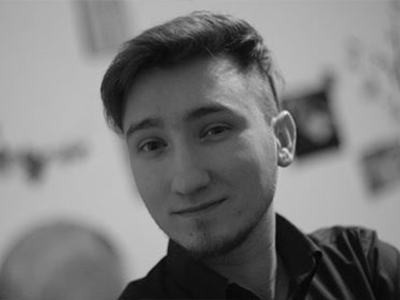
David Melhart
PhD Student and Research Support Officer at the Institute of Digital Games, University of Malta.
David Melhart is a PhD Student and Research Support Officer at the Institute of Digital Games, University of Malta. Under the supervision of Georgios Yannakakis and Antonios Liapis, he focuses his research on the application of affective computing in games user research and AI-assisted videogame design. He is responsible for the design and maintenance of paper media, and web and social media presence of the Summer School.
Summer School Program
| Monday | ||
| Morning | 08:00-09:00 | Registration |
| 09:00-10:30 | Introduction to the Summer School and Game AI Georgios N. Yannakakis & Julian Togelius |
|
| 10:30-11:00 | Coffee Break | |
| 11:00-13:00 | AI for Game Playing Julian Togelius |
|
| Midday | 13:00-14:00 | Lunch (Included with Registration) |
| Afternoon | 14:00-15:00 | AI for Game Playing Julian Togelius |
| 15:00-16:00 | Automated Playtesting with Procedural Personas Christoffer Holmgård  |
|
| 16:00-16:30 | Coffee Break | |
| 16:30-18:30 | Using Unity and ML-Agents for Research, NPC AI, and More Arthur Juliani  |
|
| Evening | from 20:00 | Welcome Reception |
| Tuesday | ||
| Morning | 09:00-10:30 | Search-Based and Constructive Procedural Content Generation Georgios N. Yannakakis & Julian Togelius |
| 10:30-11:00 | Coffee Break | |
| 11:00-12:30 | Machine Learning-Based, Mixed-Initiative and Experience-Driven PCG Georgios N. Yannakakis & Julian Togelius |
|
| 12:30-13:00 | What Goes into Making a Game: Orchestrating the Creative Facets of Games Antonios Liapis |
|
| Midday | 13:00-14:00 | Lunch (Included with Registration) |
| Afternoon | 14:00-16:00 | From AI-Driven Backstory Generation to Procedural Dialogue Emily Short |
| 16:00-16:30 | Coffee Break | |
| 16:30-18:30 | Procedural Dialogue Practical Session Emily Short |
|
| Evening | Free Evening | |
| Wednesday | ||
| Morning | 09:00-10:30 | Player Modeling Georgios N. Yannakakis |
| 10:30-11:00 | Coffee Break | |
| 11:00-13:00 | From Game Analytics to Affective Computing Georgios N. Yannakakis |
|
| Midday | 13:00-14:00 | Lunch (Included with Registration) |
| Afternoon | 14:00-16:00 | Deep Reinforcement Learning for Game Playing Matteo Hessel  |
| 16:00-16:30 | Coffee Break | |
| 16:30-18:30 | Deep Reinforcement Learning for Game Playing (continued) Matteo Hessel  |
|
| Evening | Free Evening | |
| Thursday | ||
| Morning | 09:00-10:30 | Player Profiling: a Sequence-Based Approach Alessandro Canossa  |
| 10:30-11:00 | Coffee Break | |
| 11:00-13:00 | Profiling
players based on their lifetime expectancy: when and where will they leave the game? Africa Perianez  |
|
| Midday | 13:00-14:00 | Lunch (Included with Registration) |
| Afternoon | 14:00-14:20 | Jam Introduction and Team Formation Presenter & Facilitator: Antonios Liapis |
| 14:20-16:00 | Game AI Jam Facilitator: Antonios Liapis |
|
| 16:00-16:30 | Coffee Break | |
| 16:30-18:30 | Game AI Jam Facilitator: Antonios Liapis |
|
| Evening | Free Evening | |
| Friday | ||
| Morning | 09:00-10:30 | Deep Reinforcement Learning in Action: For Honor & Watch_Dogs 2 Case Studies Olivier Delalleau  |
| 10:30-11:00 | Coffee Break | |
| 11:30-13:00 | Game AI Jam Facilitator: Antonios Liapis |
|
| Midday | 13:00-14:00 | Lunch (Included with Registration) |
| Afternoon | 14:00-16:00 | Game AI Jam Facilitator: Antonios Liapis |
| 16:00-16:30 | Coffee Break | |
| 16:30-18:30 | Game AI Jam Facilitator: Antonios Liapis |
|
| Evening | 18:30-19:00 | Awards and Certificates |
| from 19:00 | Farewell Drink | |
Our participants can find the slides of the presentation at the link below.
(The directory is password protected)
Expectations on Participants
While the First Summer School on Artificial Intelligence and Games is open to participants at varying levels of expertise and seniority, you will get more out of your participation in the summer school if you come equipped with some conceptual and technical knowledge. In particular, the following topics are worth touching up on, or reading up on if you do not already know them:
Tree search algorithms: informed and uninformed search (depth-first, breadth-first, A*); game tree search (Minimax); Monte Carlo Tree Search.
Machine learning: basic concepts (supervised, unsupervised, reinforcement learning); neural networks; decision trees.
If you are unsure about your level of understanding of artificial intelligence and machine learning, try reading Chapter 2 ("AI Methods") of the Artificial Intelligence and Games book, which covers these topics. You will find pointers there to material that can help you refresh your knowledge of particular topics.
Programming: it greatly helps to be able to program in some language. Which particular language is of lesser importance. Wherever possible, examples will be given in pseudocode so as to facilitate understanding across language barriers. However, some examples may be given in e.g. Python, Java or C#. The various tutorials and hands-on workshops are expected to use different frameworks and languages. We will add the list of specific language requirements per tutorial the closer we approach the school.
Game engines: knowledge of a game engine such as Unity will be useful during the concluding game AI jam.
Bringing your own laptop is similarly beneficial for participating in the practical sessions. We will not be able to provide a laptop for you during the summer school.
Apart from this, we only need you to come equipped with an open mind and a willingness to learn.
We want the First Summer School on Artificial Intelligence and Games to be joyful as well as useful occasion for all of us. Remember that participants come from many different countries, backgrounds, and experience, and treat everyone with respect and kindness. Please talk to the organisers if we can do something to improve your experience.
Software Guidelines for Participants
The various hands-on tutorials require different software installed on your laptops. To make the most of the tutorials please have the following software installed and prepared:
- Familiarise yourselves with Colab (colab.research.google.com) for Python. There is no need to install Colab as your can code online
- Install Unity and follow the instructions on how to set-up Unity and python dependencies:
github.com/Unity-Technologies/ml-agents/blob/master/docs/Installation.md - Install Inform (inform7.com)
- Install Rstudio (rstudio.com) including the following packages: dplyr, tidyr, stringr, ggplot2, traminer, caTools, caret, randomForest, e1071
- Install the java-based SPMF library (philippe-fournier-viger.com/spmf)
Scholarships
(Free passes) for Indie Developers
We are very happy to announce that there are 3 free passes available to 3 indie developers that wish to attend the 1st International Summer School on Artificial Intelligence and Games! We offer this opportunity to indie developers based on an outstanding CV and a short letter of motivation emphasizing the role of this summer school to the development of your current or future game AI projects. Selected candidates will have their registration fee waived.
The deadline for applications is now passed.
Venue
The summer school will be held at the Samaria Hotel at 1866 Square, Chania, Crete 73 135 Greece.
"This fully renovated 4* property offers a fresh and inviting ambiance of high aesthetics and design. The Samaria is situated on 1866 Square in the heart of Chania. Its advantageous location right in the town's commercial centre places the hotel a stone's throw from the Old Town and the Venetian Harbour, as well as just a few minutes from the main attractions, thus making it an ideal base to explore the scenic Chania Town and the surrounding areas."
/from the Samaria Hotel's website/
Accommodation & Travel
The city of Chania, located on Crete, Greece, is home to a 14th-century Venetian harbour with a picturesque lighthouse, and charming old town.
As a favoured tourist destination, Chania is well connected through air traffic and offers a wide variety of accommodation both for those, who are looking for comfort and those, who travel on a budget. We have negotiated more affordable prices for the conference attendants with our host, the Samaria Hotel, however, there are many other options available from hotels to Airbnb.
Accommodation
The Samaria Hotel will offer a special booking code to all our participants between May 26 to June 4. You will be able to use the booking code: GAMEAI to access special rates for your stay. In order to take advantage of the offer please follow these steps:
- To choose from the available room types and proceed with a booking go to samariahotel.gr.
- Insert the arrival and departure date and number of occupants and then SEARCH AVAILABILITY.

- On the next page, select BOOKING CODE (on the right-hand side, on the top of the page), insert the code: GAMEAI (case sensitive) and select APPLY CODE.

We can also recommend these 4-star hotels:
These 3-star hotels:
And for those who are travelling on a budget, we recommend browsing through Airbnb.
Travel
Chania's airport is Chania International Airport (CHQ), which is our recommended arrival option. The next-closest airport is Heraklion (HER), which is 2-3 hours away from the venue by car/bus.
Chania is a major hub of European low-cost airlines. Ryanair is the largest, flying from 27 cities in Belgium, Cyprus, Denmark, France, Germany, Greece, Italy, Lithuania, the Netherlands, Norway, Poland, Sweden, and the UK. Other low-cost options operating during May and June, including:
easyJet (London), Jetairfly (Brussels), Norwegian (Bergen, Copenhagen, Helsinki, Oslo, Stockholm), and Transavia (Amsterdam).
Those coming from outside Europe will probably find it easiest to connect with a network carrier instead. There are numerous daily flights to Athens and Thessaloniki on Aegean and Olympic, which have codeshare deals with major international airlines. There are also weekend flights to Vienna on Austrian. As always, international itineraries will be much cheaper if they include a Saturday-night stay either before or after the conference.
Visa
If you are visiting Greece on a business or conference trip and are a citizen of a non-EU country, you may need a visa.
If you require a visa to travel to Chania please contact us to send you an invitation letter.








